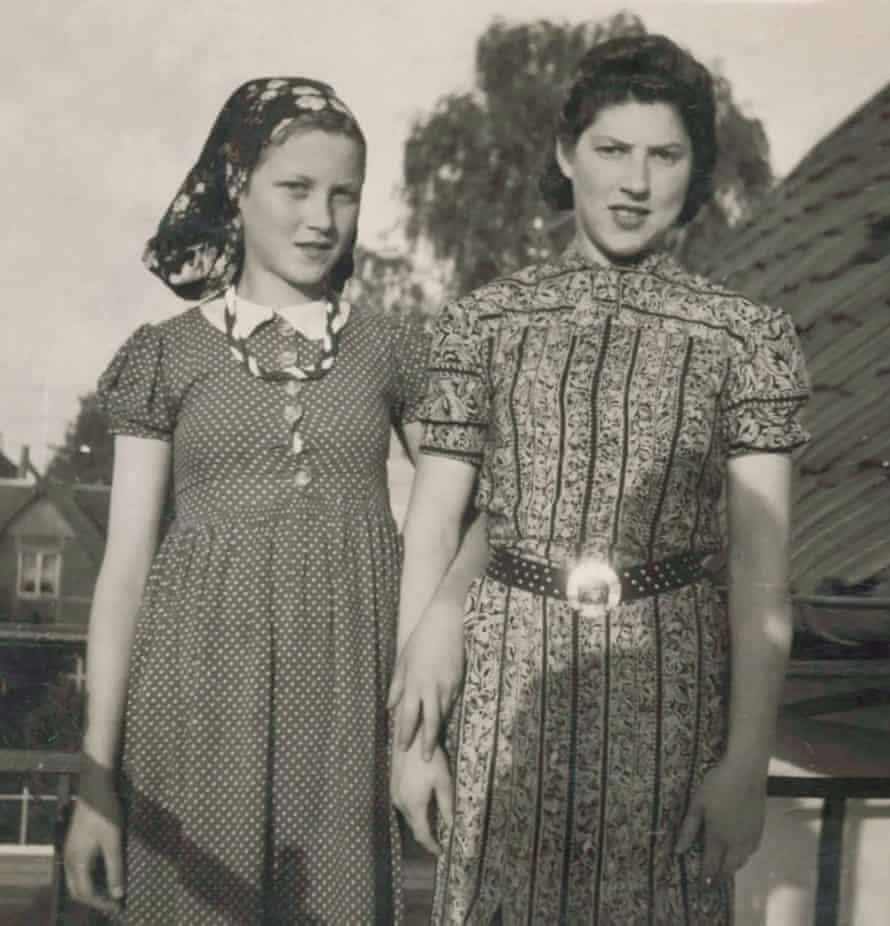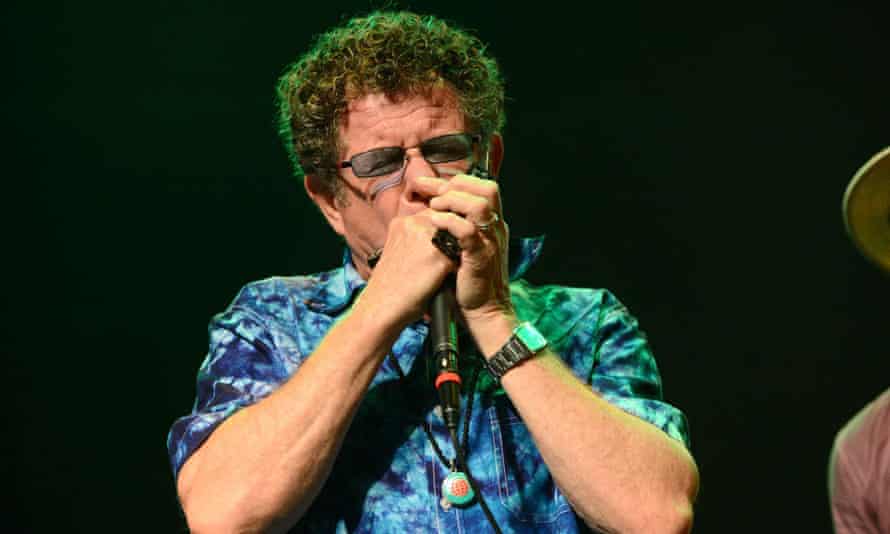When harmonica legend Lee Oskar was seven years old and about to enter a new school, his mother gave him a stern warning. “’If someone asks what school you’re in, say it’s a religious school,’” Oskar recalled. “Never say ‘Jewish school.’ There was always this intense fear of telling someone that they were Jewish.”
His warning came in 1955, a decade after the defeat of the Nazis, when Oskar’s family lived in Copenhagen, one of the most welcoming cities in Europe. But, as the musician says, “that didn’t matter. Fear never goes away.”
That’s especially true for families like Oskar’s. His mother and aunt are Holocaust survivors who experienced a litany of terrors as unimaginable as they are undeniable. And, as Oskar says, “those experiences don’t end with the people who survived them. It continues in their children and in future generations.”
For Oskar, that meant a constant drumbeat of fear “that at any moment someone could knock on my door and shoot me.” The sense of ambient angst persisted even as Oskar became a key member of one of the most successful and influential bands of the ’70s, War. His hits, from Low Rider to Cisco Kid to The World is a Ghetto, proved so rhythmically inventive and culturally resonant that they remain touchstones of pop as well as lodestones of hip-hop sampling. While elements of Oskar’s family history subtly informed his work throughout his career, only now, at age 73, has he created an album wholly focused on both the private processing and public preservation of that legacy. An all-instrumental collection titled Never Forget, the album serves as what the musician calls “my musical memories.” It features a wide range of sounds, from sweeping classical orchestrations and haunting Klezmer interludes to intimate sections centered around a lute, flamenco guitar, and Oskar’s own flexible harmonica.
It’s his first solo effort in 25 years, and the one he felt most compelled to create. “If I went to my grave and never expressed the fears and humiliations that I have always had, I would be ashamed of myself,” Oskar says during a Zoom interview from his home near Seattle. “I have a fiduciary responsibility to my art, to humanity and to my family to acknowledge that this happened.”

To flesh out the story, images of her mother and aunt appear throughout the set’s elaborate packaging. But all the horror, as well as the surprising inspiration, embedded in her story can only be found in a riveting 1999 documentary about her aunt, Judy Meisel, titled Tak for Alt (Danish for “thanks for everything”). The very outlines of the sisters’ horrific saga include the confinement and starvation of teenagers in the Kovno ghetto, in their native Lithuania, before being sent to the Stutthof concentration camp in Poland, where, upon arrival, an officer SS officer pulled out every last strand of hair. of Meisel’s head by hand. At the camp, their mother was murdered in the gas chamber, a fate the sisters accidentally escaped. From there, the young women endured a death march out of the camp as bombs exploded around them, as well as a bewildering time hiding under assumed names in a convent, before making their way to a ship bound for Denmark, which was torpedoed throughout. the way.
Oskar’s aunt, Judy, dedicated her life to speaking about the sisters’ experiences, at schools, public lectures, and historical projects. He also made sure to connect his story to the American civil rights movement. But Oskar’s mother, Rachel, was never able to talk about it. “I was too devastated,” she says. “Because she was older than my aunt and acted like a mother to her, it affected her differently.”
At the same time, her mother had a nonverbal way of preserving her story. “He would write over and over on little pieces of paper the timeline of his life, in Yiddish, Danish and English,” says Oskar. “She wanted people to know ‘I was in this death camp.'”
The experience kept her in perpetuity. “Even when we watched a cowboy movie as a kid, the sight of a gun would set her off.”
The intensity in the family deeply affected Oskar growing up. “There was no joy at home. I don’t think anything in their lives could be accepted the way they should have been.”
Oskar began to find his own joy through music, although his parents never encouraged him. “I remember coming home at eight years old with a guitar and bongos that we used to play at school. I was so excited. But it wasn’t like, ‘Oh, honey, that’s good.’ It was more like ‘What is this? You’re wasting your time.'”

The harmonica entered his life as a child. “All children have one. The following year, it was the hula-hoop and then the yo-yo. But I kept playing the harmonica.”
The heaviness that Oskar felt at home, as well as his ambitions to design a radically different life for himself, prompted him to leave not only his family but also his country at the age of 18. First, he came to New York and played in the streets, before emigrating. to Los Angeles, where he met the other musicians who would form War. He also met Eric Burdon, who was looking for new artistic inspiration after Animals broke up in 1969. By this time, Oskar had already changed his birth name, Oskar Levitin, to Lee Oskar, a decision prompted in part by a desire to mask his Jewish identity. War released two albums with Burdon, marked by the Latin-tinged pop hit Spill the Wine, as well as a growing reputation as an exceptional live act. In September 1970, a headline in the NME labeled them “the best live band we’ve ever seen”. The performance that inspired that award was later made historic by a jam between War and Jimi Hendrix that turned out to be the guitarist’s final performance, who died the next day. “Jimi was not in great shape,” remembers Oskar. “He told me: ‘Lee, am I playing well?’” However, he still managed to offer a few solo copies.
After Burdon left the band, it seemed to some observers that War himself might die. But Oskar says he never doubted a bright future for them given the chemistry between the musicians, the quirkiness of their image and the unique breadth of their sound. With black, Latino, and white members, War drew inspiration from R&B, soul, Latin music, rock, pop, and jazz. While they amassed a long list of hit singles, their full albums offered a much more expansive sound, riddled with elaborate solos and complex rhythms. “If you just listened to the singles, you really missed the boat,” says Oskar.
A unique factor in War’s sound was the decision to place Oskar’s harmonica in the context of a brass section alongside saxophonist Charles Miller. The two musicians created the 12-note call and response on Low Rider that remains one of the most recognizable and coolest hooks in music. “We loved creating those countermelodies,” says Oskar.
War’s focus on voice, both as a sound and as a symbol, was also noted. Several members often sang in unison, giving the music the feel of a clamoring but convivial community in conversation. The effect communicated a message of unity that made War’s sound and feel the opposite of its namesake.
While still in the band, Oskar began releasing solo albums in 1975 with a self-titled work. The following year, Billboard voted him the best instrumental artist. In 1980, the title track from his album My Road, Our Road explored some of the themes that would ultimately come to fruition more than forty years later on Never Forget. A very different version of the old song My Road serves as the finale of the new album, which is Oskar’s way of extending his family’s path through his own. Another song on the new album, Miracle Children, borrows a phrase his aunt Judy used to use to describe Oskar, as well as his siblings and cousins, as the offspring his mother and aunt never expected to have. Although the album does not use words to convey its message, Oskar feels that “the music lacks nothing. I’m singing with my harmonica.”
For Oskar, creating the album has had a liberating effect, exorcising what had haunted and inspired him for so long. Unfortunately, both his mother and aunt died before he could hear the final music; Judy Meisel died last year at the age of 91. Throughout their post-war lives, the sisters have been alert to successive waves of Holocaust deniers and alarmed by the temptation of authoritarian regimes, some of which are, again, on the rise in the very areas of the war. who escaped 70 years ago. “The horrible things that humanity has done to each other keep repeating themselves,” says Oskar. “No matter how many generations come, you can never completely get over it.”
www.theguardian.com
George is Digismak’s reported cum editor with 13 years of experience in Journalism